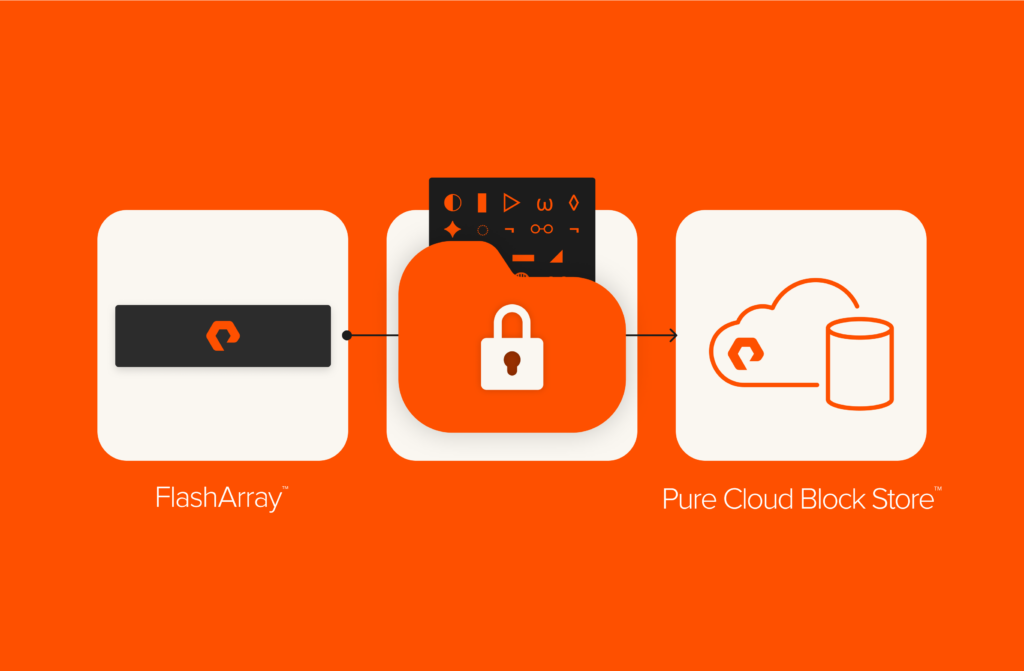Summary
Modern storage infrastructures have become more software-defined and API-driven. HAR files provide visibility into the internal operations of management interfaces and APIs that control storage resources.
In complex storage environments, HTTP Archive (HAR) files have evolved from simple web development tools into critical diagnostic assets for storage administrators. This comprehensive guide explores how storage professionals can leverage HAR files to optimize deployments and resolve technical challenges unique to enterprise storage operations.
What Are HAR Files? A Technical Refresher
HTTP Archive (HAR) files are JSON-formatted records that capture all HTTP transactions between a browser and web servers. For storage administrators, these files are invaluable for diagnosing issues with web-based management interfaces, API interactions, and network performance affecting storage operations.
A HAR file contains detailed information, including:
- Request and response headers
- Query parameters
- POST data
- Response content
- Precise timing metrics for each network event
- WebSocket communications (critical for real-time storage monitoring)
- Authentication sequences and token exchanges
How Storage Administrators Can Use HAR Files
Storage administration has evolved significantly, with web interfaces and RESTful APIs becoming the primary management paradigm. HAR files provide several critical advantages for Pure Storage administrators:
- Faster root cause analysis: HAR files capture the complete communication sequence between administrative tools and storage arrays, allowing pinpoint identification of failures in API call sequences to Pure Storage® FlashArray™ and FlashBlade® systems.
- Security compliance documentation: In regulated environments, HAR files provide audit evidence of configuration changes and access patterns, complementing the capabilities of Pure1® Log Center.
- Performance optimization: HAR files identify network bottlenecks affecting management operations, which is particularly important when managing Pure Storage high-performance all-flash infrastructure across distributed environments.
- API implementation verification: HAR files validate the correct implementation of Pure Storage REST APIs in custom automation scripts and third-party integrations.
Generating Storage-relevant HAR Files
The process of capturing HAR files has been streamlined in 2025’s browsers. Here’s how to capture storage-specific activities:
- Open your browser’s Developer Tools (typically F12 or Ctrl+Shift+I).
- Navigate to the Network tab.
- Enable Preserve Log to capture the complete session.
- Clear the current network log to start fresh.
- Log in to Pure1, your FlashArray management interface, or other storage management portal.
- Perform the specific storage operation you’re troubleshooting.
- Right-click and select Save all as HAR with content.
Pro tip for Pure Storage administrators: When troubleshooting Pure1 VM Analytics issues, ensure you capture WebSocket traffic by enabling the WS filter in your browser’s network tools before recording.
Advanced HAR Analysis for Pure Storage Environments
Identifying Authentication Issues with Pure1 and FlashArray
Authentication problems represent a common challenge when accessing Pure Storage management interfaces. HAR files reveal critical details about:
- OAuth2 token exchanges with Pure1
- Session timeout patterns
- SAML authentication sequences for SSO implementations
- Role-based access control (RBAC) permission problems
Example analysis:
|
1 |
json |
|
1 |
{ |
|
1 |
“method”: “POST”, |
|
1 |
“url”: “https://api.pure1.purestorage.com/oauth2/token”, |
|
1 |
“status”: 401, |
|
1 |
“statusText”: “Unauthorized”, |
|
1 |
“errorText”: “Invalid client credentials” |
|
1 |
} |
This response indicates an API key validation failure when attempting to authenticate with the Pure1 API, commonly seen when API keys have expired or been rotated during automated script executions.
Diagnosing Pure Storage API Performance Issues
Pure Storage arrays deliver sub-millisecond latency for data operations, but administrative API calls may experience different performance characteristics. HAR analysis helps distinguish between:
- Network latency issues
- API request queuing during high administrative load
- Authentication/authorization processing delays
- Bandwidth constraints affecting large configuration changes
Performance analysis technique: Sort HAR entries by duration to identify the slowest API calls in your Pure Storage management workflows. Pay special attention to calls exceeding 500ms, as these represent opportunities for administrative efficiency improvements.
Troubleshooting Pure1 Integration Challenges
Pure1 cloud-based management introduces unique troubleshooting scenarios that HAR files help resolve:
- Cloud connectivity issues between on-premises arrays and Pure1
- API version mismatches after array firmware updates
- Phone home service connectivity problems
- Certificate validation errors in TLS communications
Real-world example: When a FlashArray system appears offline in Pure1 despite being operational, HAR analysis often reveals TLS certificate issues in the encrypted communication channel between the array and Pure1 cloud services.
HAR-assisted Testing for ActiveCluster Deployments
ActiveCluster™ synchronous replication demands precise configuration of management interfaces across multiple sites. HAR files provide valuable insights when:
- Validating successful pod configuration changes across cluster members
- Troubleshooting asymmetric management access issues
- Diagnosing authentication differences between sites
- Monitoring replication state change events
Pure1 Integration with HAR Analysis Results
Pure Storage has enhanced the 2025 version of Pure1 with integrated HAR analysis capabilities:
- Upload HAR files directly to Pure1 support cases for faster resolution
- Automated HAR analysis with the Pure Storage AI-driven diagnostics engine
- Historical comparison of management interface performance across firmware updates
- Correlation of management API issues with storage performance metrics
Security Considerations for Storage HAR Files
HAR files from storage management sessions contain sensitive information requiring careful handling:
- Authentication tokens and session cookies must be redacted before sharing.
- Array IDs and network topology information should be sanitized.
- Consider using the Pure1 secure HAR analysis feature, which automatically removes sensitive data.
- Implement retention policies for HAR files containing management interface details.
Automating HAR Analysis for Large Pure Storage Deployments
For enterprises managing multiple Pure Storage arrays, manual HAR analysis becomes impractical. Consider these automation approaches:
Python-based HAR processing:
python
|
1 |
<em># Example script for monitoring Pure1 API response times</em> |
|
1 |
import json |
|
1 |
import statistics |
|
1 |
def analyze_pure1_performance(har_file): |
|
1 |
with open(har_file, ‘r’) as f: |
|
1 |
har_data = json.load(f) |
|
1 |
pure1_calls = [] |
|
1 |
for entry in har_data[‘log’][‘entries’]: |
|
1 |
if ‘api.pure1.purestorage.com’ in entry[‘request’][‘url’]: |
|
1 |
duration = entry[‘time’] |
|
1 |
url = entry[‘request’][‘url’] |
|
1 |
pure1_calls.append({‘url’: url, ‘duration’: duration}) |
|
1 |
<em># Calculate average response time</em> |
|
1 |
avg_time = statistics.mean([call[‘duration’] for call in pure1_calls]) |
|
1 |
print(f“Average Pure1 API response time: {avg_time}ms”) |
|
1 |
<em># Identify slowest calls</em> |
|
1 |
slowest_calls = sorted(pure1_calls, key=lambda x: x[‘duration’], reverse=True)[:5] |
|
1 |
print(“Slowest API calls:”) |
|
1 |
for call in slowest_calls: |
|
1 |
print(f“{call[‘url’]}: {call[‘duration’]}ms”) |
Integration with enterprise monitoring: Extract key metrics from HAR files and feed them into monitoring platforms like Prometheus or Splunk for long-term trending of management interface performance alongside storage performance metrics.
Pure Storage-specific HAR File Interpretation
Understanding Pure Storage API structures significantly enhances HAR file analysis. Key patterns to recognize include:
- FlashArray REST API endpoints following the /api/{version}/ pattern
- Pure1 Meta® API calls with their distinctive authorization headers
- FlashBlade S3 and object storage management requests
- Pure Fusion™ management plane communications
Case Study: Resolving FlashArray//XL Performance through HAR Analysis
A large financial services organization deployed a new FlashArray//XL™ system that delivered exceptional storage performance but experienced sluggish management interface responses. HAR analysis revealed:
- Browser requests to the management interface were being routed through a proxy with 300ms of latency.
- The proxy was performing TLS inspection, adding overhead to each API call.
- HTTP/2 was disabled in the proxy, preventing connection multiplexing.
After adjusting the proxy configuration based on HAR analysis findings, management operations became as responsive as the array’s data services.
Preparing HAR Files for Pure Storage Support
When working with Pure Storage technical support, properly prepared HAR files expedite troubleshooting:
- Capture the complete operation sequence, including login.
- Use Pure1 Support’s secure upload feature to automatically sanitize sensitive data.
- Include timestamps of when the issue occurred.
- Note any error messages displayed in the interface.
- Document the browser version and any extensions that might affect web requests.
Conclusion: HAR Files as Essential Tools for Modern Storage Administration
As storage infrastructures become more software-defined and API-driven, mastering HAR file analysis is no longer optional for storage administrators. For Pure Storage environments in particular, these files provide critical visibility into the internal operations of management interfaces and APIs that control your high-performance storage resources.
By applying the techniques outlined in this guide, you’ll be better equipped to:
- Provide comprehensive information when engaging Pure Storage Support
- Rapidly troubleshoot management interface issues
- Validate automation scripts interacting with Pure Storage APIs
- Ensure optimal performance of your storage management stack
- Document compliance with security requirements

Applications and Databases
Simplify management, boost performance, and dramatically
cut costs
Take a Test Drive
Explore FlashArray in our virtual lab.






